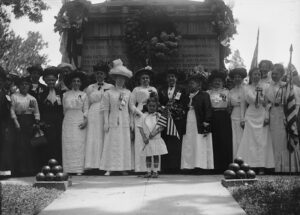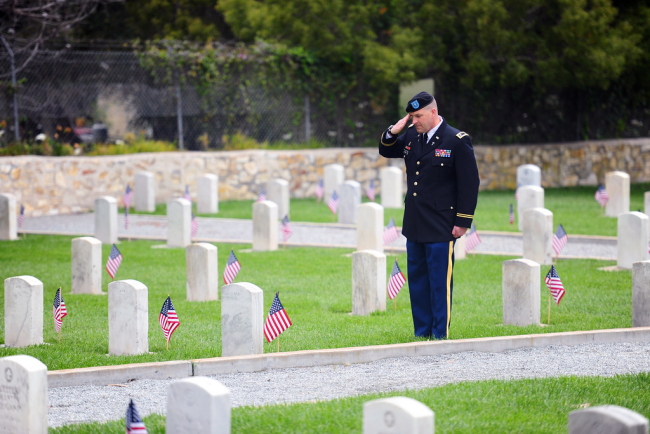MONDAY, MAY 25: It’s Memorial Day, and the unofficial start of summer in America began, less than two centuries ago, as a solemn observance for the war that had consumed more lives than any other U.S. conflict. While memorial services still abound (as shown in the photo above), the national holiday today also means barbecues, beaches, parades and fireworks—although this year, many traditional festivities may look different than they do most years. Amid the coronavirus pandemic, families are being encouraged to barbecue at home, watch parades virtually (check out this one, from Farmington Hills, Michigan) and—in places where beaches are reopening—practice social distancing and safety protocols in outdoor public areas.
TUNE IN: PBS will be hosting a National Memorial Day Concert on Sunday, May 24 at 8 p.m. ET to honor veterans as well as the men and women who are fighting against COVID-19.
TRAVEL: Memorial Day weekend is typically a popular travel period in the United States, but this year—in spite of record-low gas prices—travel numbers will be down significantly. Still, those who are planning to travel can check out tips from CNN, this news channel out of New York, and the Los Angeles Times.
FROM CIVIL WAR GRAVESITES TO MEMORIAL DAY

A group of women at the Civil War Unknowns Monument in Arlington National Cemetery on Memorial Day, circa 1915. Photo courtesy of Wikimedia Commons
Memorial Day began as an annual, grassroots practice of sprucing up the gravesites of the countless Americans who died during the Civil War. That’s why, for many years, the observance was called Decoration Day, describing the flowers and colorful flags that seemed to sprout across cemeteries each spring.
For much of the 20th Century, however, the painful early roots of this observance were forgotten as proud civic boosters across the country tried to claim their own unique slices of this history. Then, Yale historian David W. Blight researched and corrected the record, finally honoring the fact that the courageous pioneers in observing this holiday were former slaves in the South who dared to decorate Yankee graves.
In his history, Race and Reunion, Blight writes: “Decoration Day, and the many ways in which it is observed, shaped Civil War memory as much as any other cultural ritual.”
Blight continued to research race and American memory in that era and was honored with the 2019 Pulitzer Prize in history for his in-depth biography, Frederick Douglass: Prophet of Freedom.
MEMORIAL DAY & CIVIL RELIGION
The famed sociologist of American religion, Robert Bellah, also shaped the evolution of Memorial Day’s meaning in a landmark article he published in a 1967 issue of Dædalus, the Journal of the American Academy of Arts and Sciences. He called his long article “Civil Religion in America,” taking the centuries-old concept of “civil religion” and kicked off decades of fresh research into how our civil religion defines our American culture. You can read Bellah’s entire original article online.
A few lines from Bellah’s article about Memorial Day …
Until the Civil War, the American civil religion focused above all on the event of the Revolution, which was seen as the final act of the Exodus from the old lands across the waters. The Declaration of Independence and the Constitution were the sacred scriptures and Washington the divinely appointed Moses who led his people out of the hands of tyranny.
Then—The Civil War raised the deepest questions of national meaning. The man who not only formulated but in his own person embodied its meaning for Americans was Abraham Lincoln. For him the issue was not in the first instance slavery but “whether that nation, or any nation so conceived, and so dedicated, can long endure.” … With the Civil War, a new theme of death, sacrifice, and rebirth enters the new civil religion. It is symbolized in the life and death of Lincoln. Nowhere is it stated more vividly than in the Gettysburg Address, itself part of the Lincolnian “New Testament” among the civil scriptures.


Tell Us What You Think